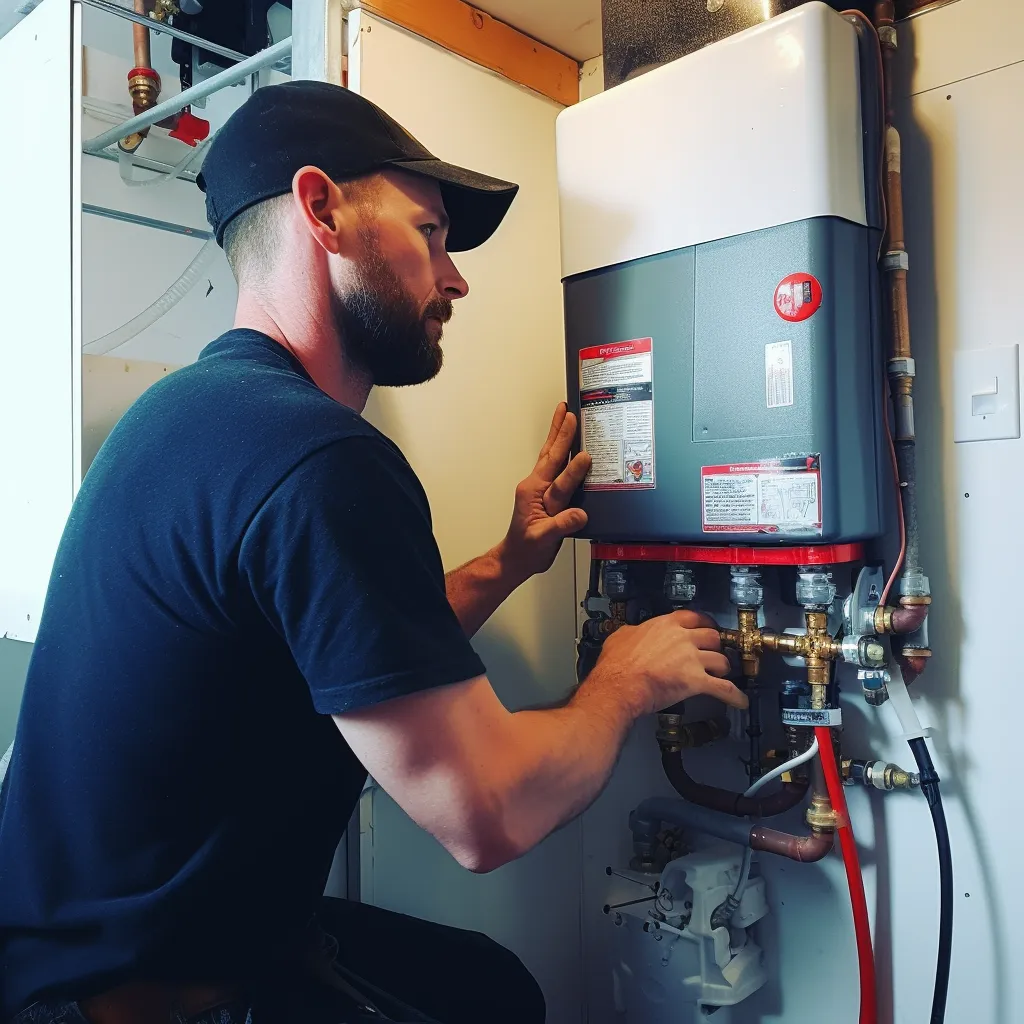Water Heater Replacement Cost: Everything You Need to Know
Thinking about replacing your water heater? A quality hot water system is important for any home, but cost can make or break the decision. Here's what you need to know about the expense of water heater replacement, along with factors that could impact it. Whether it's gas or electric, discover how much it might cost to upgrade your home with this essential appliance.

How do you know when you need to replace a water heater?
Replacing a worn-out water heater is crucial for any homeowner who wants a steady supply of hot water. So, what are some telltale signs that it's time for an upgrade? Here are a few things to keep in mind:
Age is a factor: Generally, water heaters can last about 8-12 years before they go kaput and need replacement. If your model is beyond this point in age, you should think about replacing it.
Corrosion or rust: In case you notice signs of corrosion on the tank, it’s probably an indicator that you need to replace your water heater.
Leaks: While you may be able to resolve some minor leaks easily, others are likely to demand a full replacement.
Insufficient hot water supply: If your hot water supply has dropped or you’re finding yourself running out sooner than usual, your best bet might be to replace your water heater.
Be proactive about keeping your home's hot water needs in check. Don't wait until your old unit totally fails.

What affects water heater replacement cost?
The cost of replacing a water heater can vary for several reasons, including:
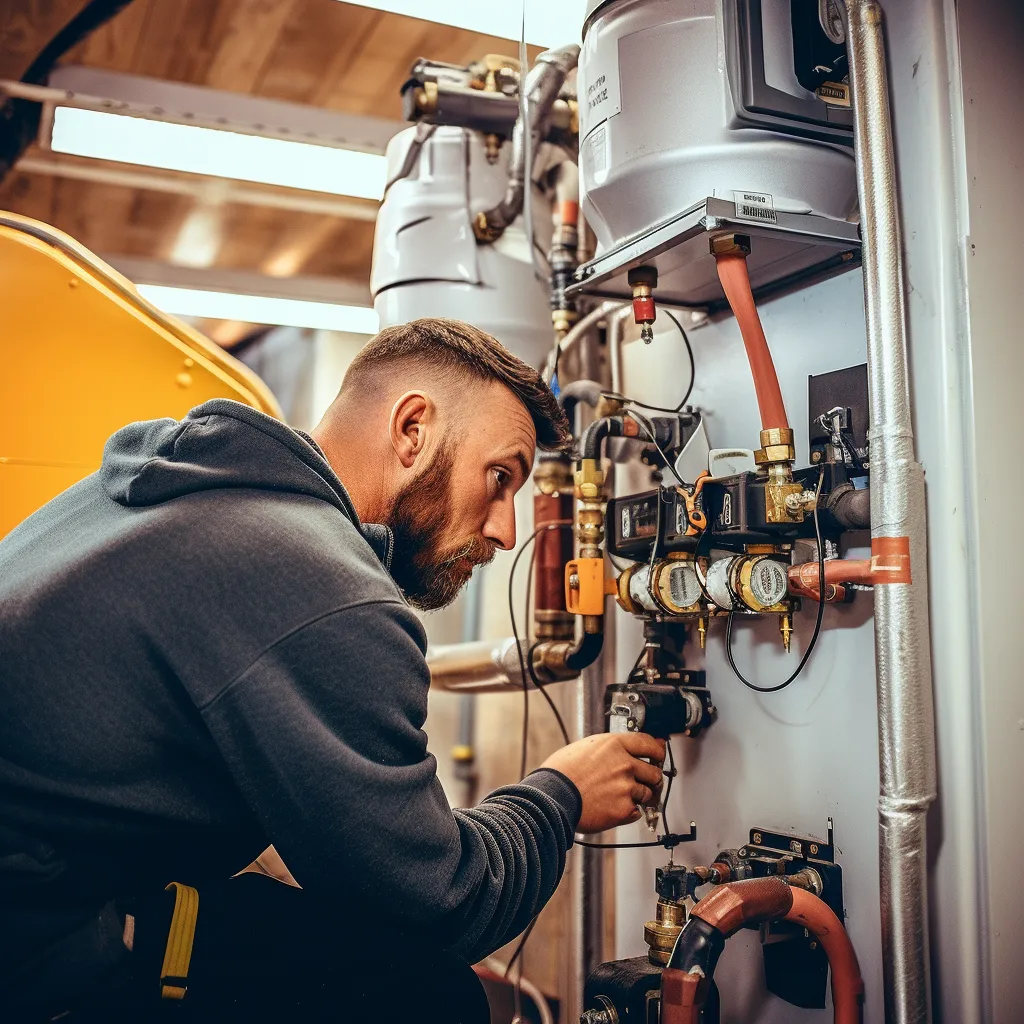
Type: When it comes to the type of water heater, some models may be pricier due to their size and energy efficiency ratings – gas or electric doesn't really matter.
Size of the unit: In general, the larger the unit, the more it'll cost.
Extras: Choosing extras like automatic shutoff valves or pressure relief valves will increase the overall cost of replacing your water heater.
Installation costs: Installation costs can vary based on the scope of the project, additional materials needed, and whether you need new pipes or venting systems.
Labor costs: Professional plumbers may charge hourly or a flat fee for their labor.
Permits: Depending on the local building codes, permits may be necessary before any work can begin.
Location: Location is another factor – the availability of technicians and cost of living in your region can affect the final price.


What are the benefits
of replacing an old water heater with an
energy-efficient one
Investing in an energy-efficient water heater has several benefits:
Cut down on utility bills: The monthly energy bills can drop significantly with energy-efficient water heaters. Traditional models consume a large amount of energy, whereas replacing it with an eco-friendly option cuts your energy usage by half.
Lengthy lifespan: Durable and designed to last, you won't be replacing the energy-efficient heater as often.
Comfier experience: Upgrading to a new water heater ensures better hot water flow and temperature, giving you an enhanced experience.
Eco-conscious: The energy-efficient models consume less energy, making them a greener alternative.
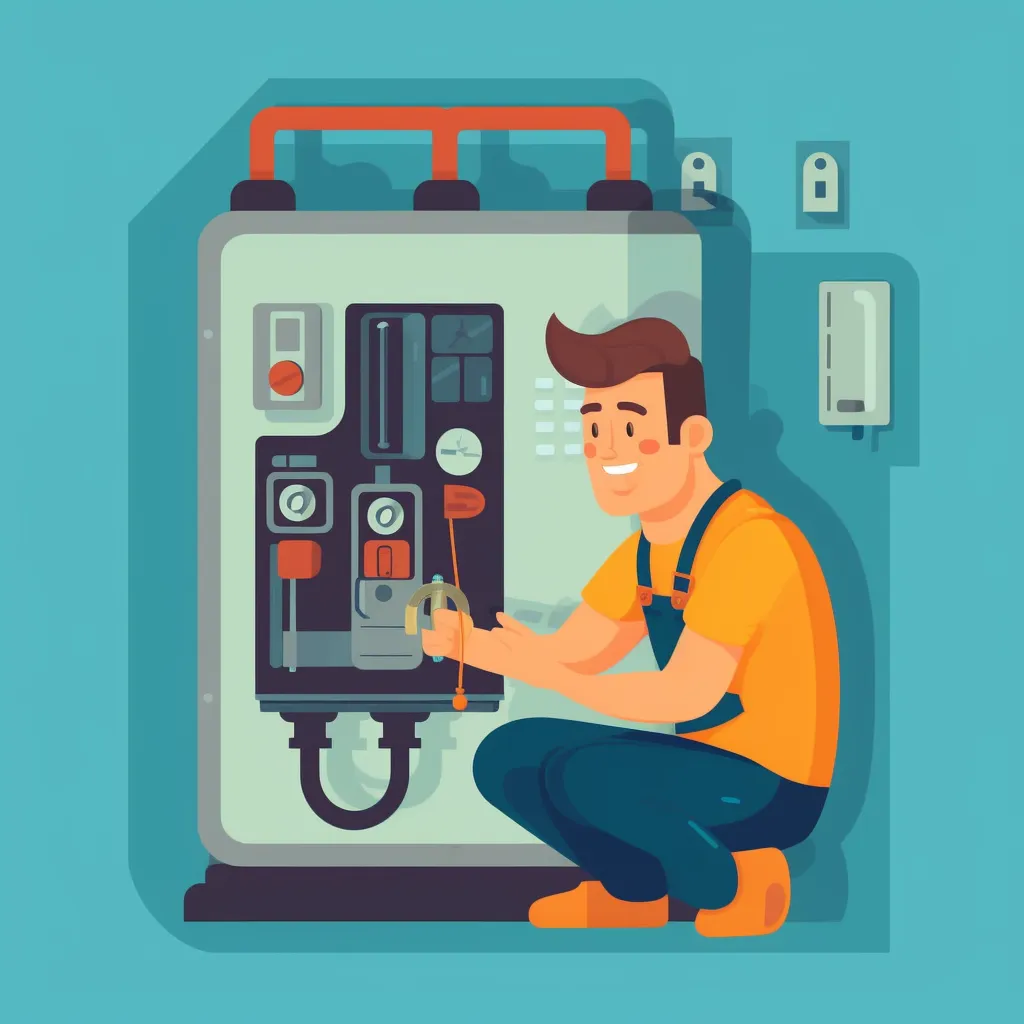
How to calculate the size of the water heater you need for your home

It's important to pick the right size hot water heater. Getting one that's too small means your family has to deal with cold showers and frustration, while a huge one wastes energy. Several factors affect the size you should choose:
Household size: Household size is a big factor when picking a water heater. If you have more folks living under your roof, then you'll need a bigger water heater.
Type of fuel source: Electric ones are usually smaller than gas-powered models.
Type of usage: If you plan to use the hot water for more than just washing up, such as doing laundry, then you may need a larger tank.
Climate: If you live in a chilly climate, you might want to go for a larger tank to keep your water hot.

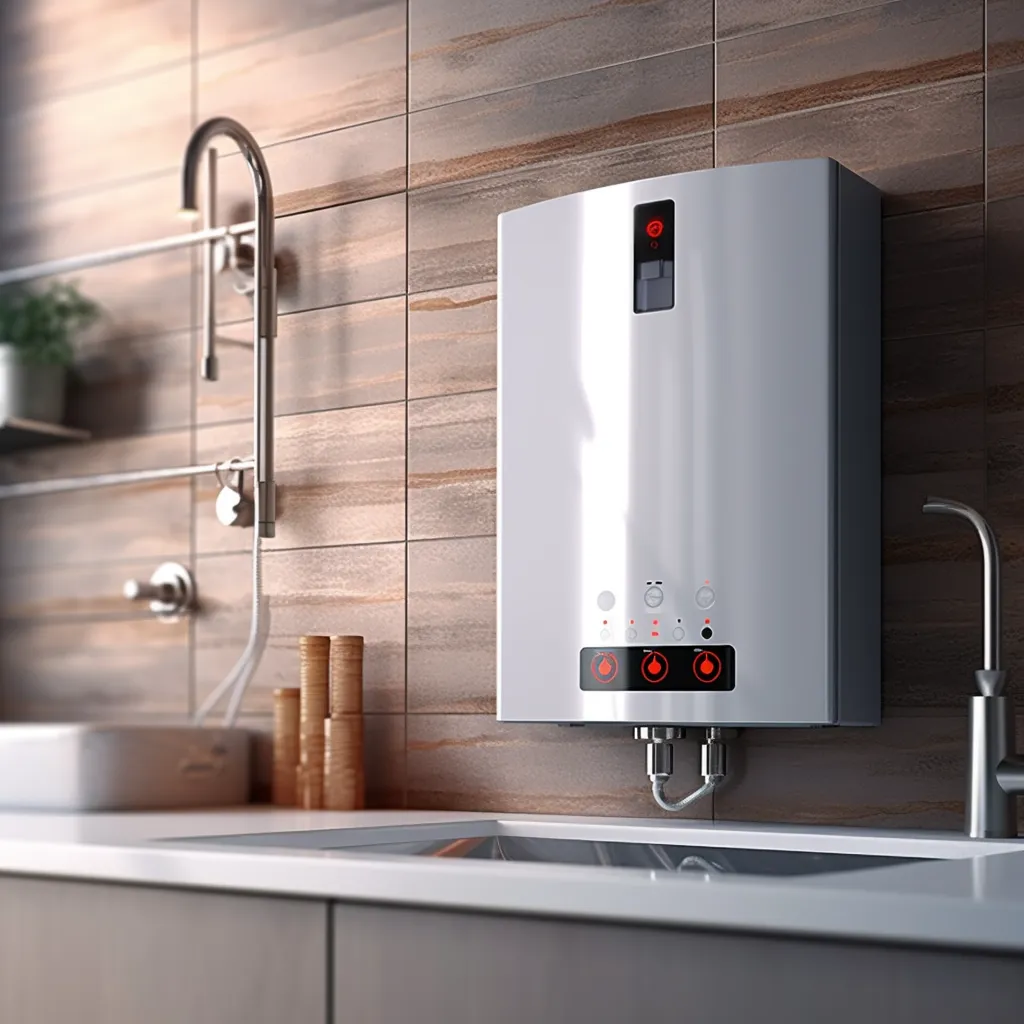
Research the different types of water heaters
When choosing the right water heater for your home, there are different options to consider. Tank water heaters store hot water for later use, while tankless ones heat water on demand, saving energy in the long run. Hybrid models are a mix of both and more efficient than traditional tanks. For a sustainable choice, solar water heaters use the sun's energy and heat pump models pull heat from the air to heat water. Evaluate the variety of options to decide which is the perfect fit for your home.

Costs of water heaters by type
Water heaters can be tricky to replace, and they can cost a pretty penny too. The type of unit selected impacts the final price.

Direct vent vs power vent: Direct vent water heaters are the most affordable option, with prices starting at around $500. Power vent models are more expensive and can cost between $700 and $1,200.
Traditional tank heaters: Affordable, but don't last as long and have higher bills.
Tankless heaters: Costs more, but longer lifespan and lower energy bills.
Heat pump heaters: Prices are mid-range, but can lead to big savings down the road.
Solar heaters: Most expensive upfront, but benefit the earth and your wallet long term.
Smart heaters: New on the scene, allows you to control from your phone and save energy.
Condensing heaters: Expensive, but super efficient.
Gas vs. Electric: Gas models are cheaper, but electric can be more energy efficient.
Costs of installation and ongoing maintenance for each type of water heater
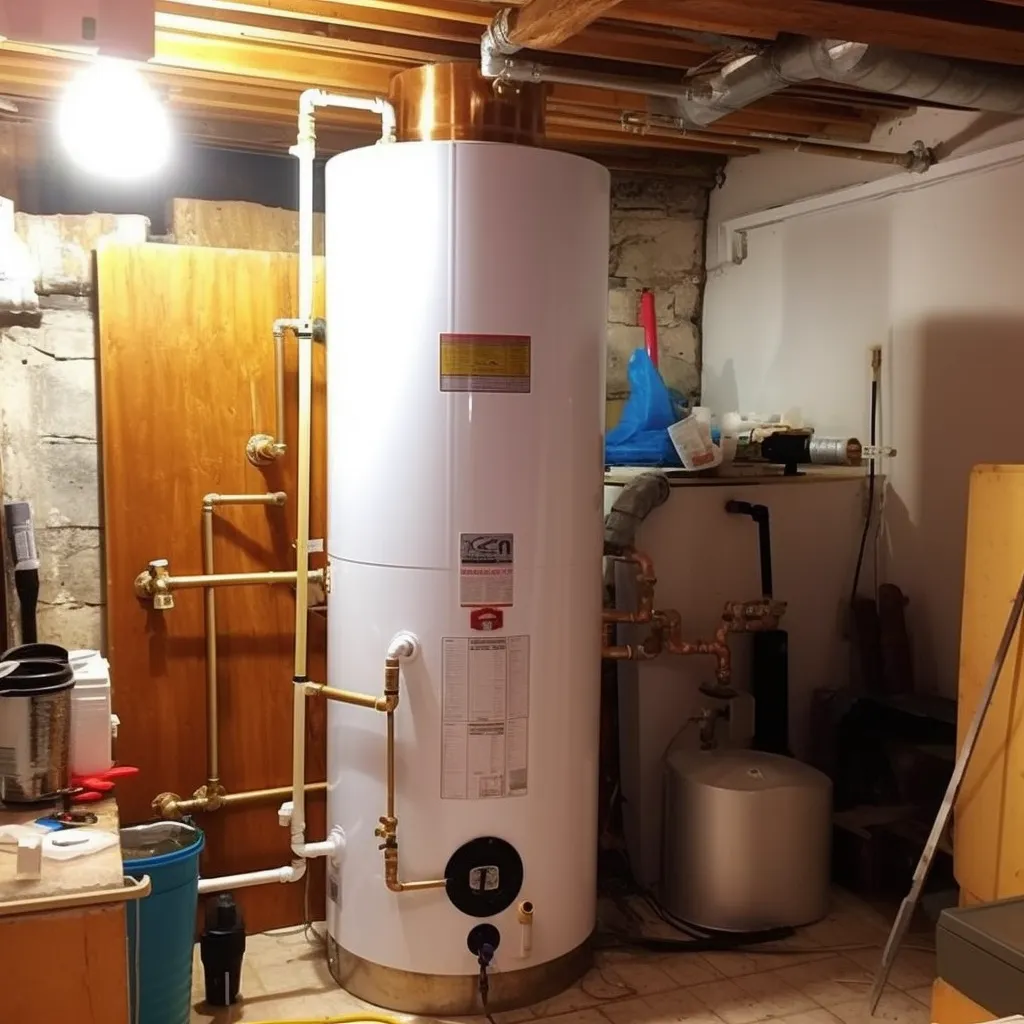
When you're picking a new water heater, remember to consider the cost of installation and ongoing maintenance. Regular tank water heaters have a low installation cost, but they're usually more expensive to maintain and in the long term can cost more. Tankless water heaters have a higher installation cost, but they're usually cheaper to maintain and can save you money over time. Heat pump heaters fall between the two, with an installation cost similar to tankless heaters and slightly higher maintenance costs than tankless, but lower costs than traditional tank heaters. Solar water heaters can be expensive to install because they need to be added to your home's plumbing system.
Don't forget to factor in fuel costs when choosing a water heater. Gas models may be cheaper than electric due to electricity expenses, and some areas may not offer certain types of fuel.

How to get an accurate estimate for the cost of a water heater
It can be difficult to get an accurate estimate for the total cost of replacing your water heater, including installation, without doing some research.
To get started, figure out what size and type of water heater you need. Just think about how many folks live with you and how you use hot water.
Check out some plumbing companies in the area and get some quotes to install and upgrade your system.
Make sure you're thinking about the cost of the water heater itself, along with any warranties or extra features you might need.
Tips to save money on a new water heater installation
Here are some tips that can help you save money on a new water heater:

While it may be tempting to try and do the installation yourself, it is important to note that many water heaters require some special tools and technical knowledge. It is always best to hire a professional for the job, as they can ensure it is done properly.
Compare prices from different retailers and plumbing companies. Shop around!
Check with your local utility company for rebates or tax credits that could save you money.
Invest in an energy-efficient model, even if the initial cost is a bit higher.
Consider total cost of ownership, not just the upfront price tag.
Look for bundle deals to save money on related products.
Take advantage of manufacturer warranties when available.
If you're on a tight budget, consider buying a used water heater after thorough inspection.

Explore financing options for your new hot water heater
If you're in the market for a new hot water heater, don't let the cost send you into a panic. There are plenty of financing options available to help make the purchase less overwhelming. One idea is to consider a home equity loan, where you can borrow against your house's equity. Another tip is searching for personal loans that you can apply to various home upgrades, including hot water heaters. You can also check with your utility provider, some offer financing for energy-efficient appliances. We're confident that looking into these financing options will help you find the perfect payment plan for your new water heater without emptying your bank account.

What to do if you need services
to replace your water heater
When your water heater is giving out, you know it's time to get a new one. But where do you start? First, check out a licensed water heater specialist who can help you out. You'll want to find someone who's reputable and knows water heater replacement inside and out. Here are some tips to keep in mind:
First, check out reviews from past customers on their website, Yelp, or Facebook.
Make sure they have experience with water heater replacement specifically. Some plumbers may specialize in other areas of plumbing.
Always confirm that they are licensed and insured before hiring.
To ensure you're getting the best deal, get at least three quotes from different companies.

A reliable professional will be able to:
Check your current water heater to see if it needs a repair or replacement.
Give you an estimate of the cost, which includes labor, materials, and taxes.
Guide you in selecting the best water heater for your needs. (we consider its size, efficiency, and price)
Complete the entire installation process- from removing the old water heater to setting up the new one.
Provide a warranty on our workmanship and the parts we use.
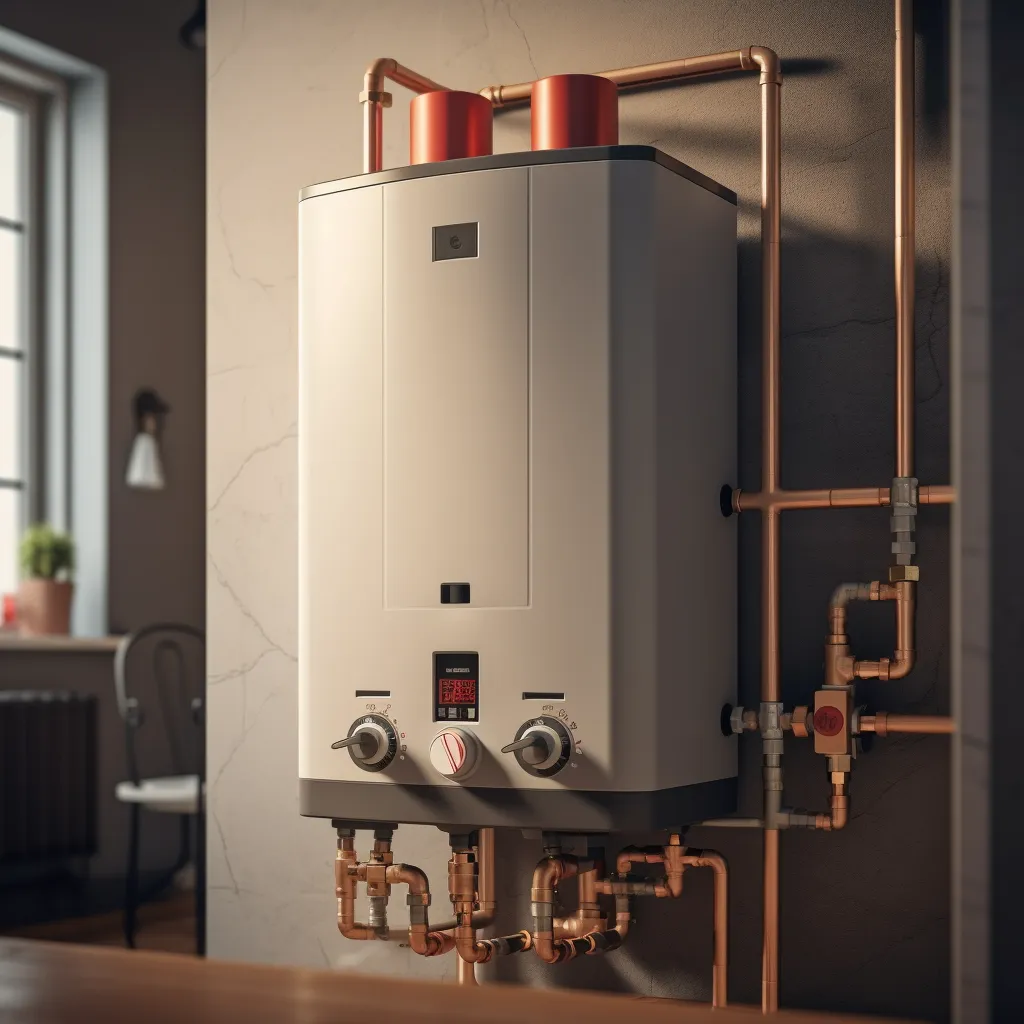
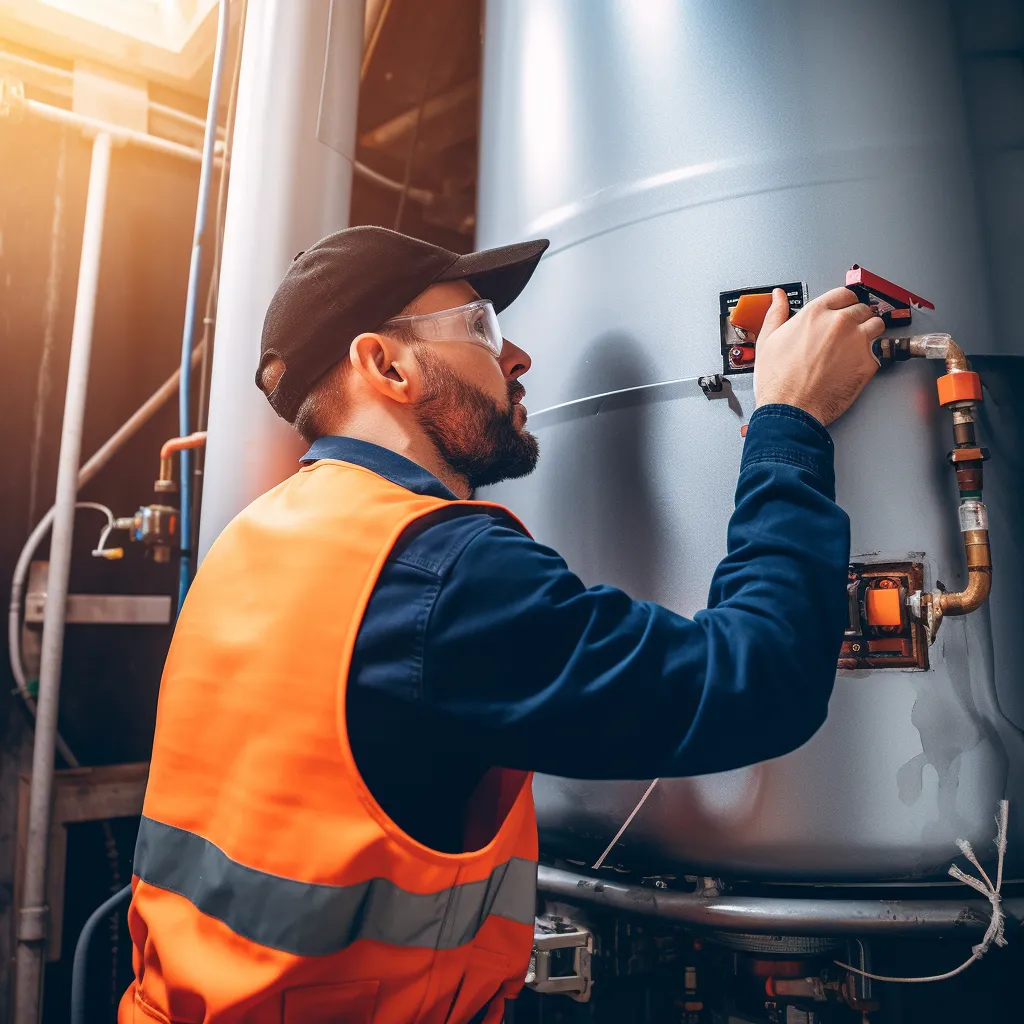
Water heaters don't last forever
Your water heater's lifespan may range from 6-12 years based on usage and efficiency. Identifying when to replace it or carry out maintenance is crucial. Factors like type, size, and installation/maintenance fees can impact the overall cost of obtaining a new water heater. After researching these options, you can estimate the cost of a new hot water heater. You may be eligible for savings if you claim rebates and incentives by switching to an energy-efficient model or purchasing extended warranties. And if it's time to replace your water heater, reach out to a licensed professional for assistance. Researching and comparing different hot water heater models can benefit you by helping you arrive at the right decision. It can save you both time and money in the long haul!
Contact Us
GET IN FULL TOUCH
PHONE:+(520) 317-8178
Don's Plumbing Repair
Maricopa, AZ 85138

